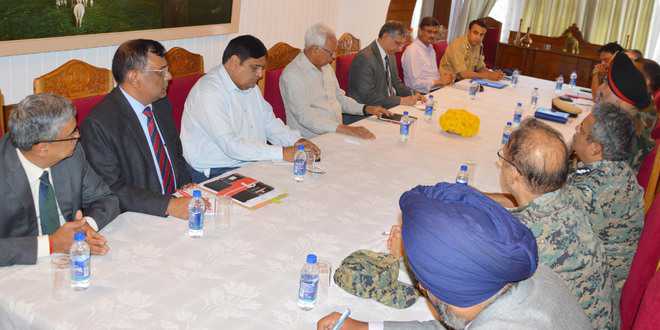
The 7-8 per cent jump in President Barack Obama’s approval ratings following the ‘taking out’ of Osama Bin Laden in Pakistan by the elite Naval SEAL’s, lasted exactly two weeks. Even though the most wanted perpetrator of 9/11 was nailed, it was the looming concerns around the US economy that sucked up all the political oxygen and public concerns in the immediate aftermath. In the following year 2012, the re-pitch for President Barack Obama’s campaign was encapsulated by the slogan ‘Forward’. The successful campaign focused around the considered responses to the Great Depression, future of social-insurance, affordable care act etc; however, no political usurpation of the successful military action against the number one terrorist in the world was substantially made for electoral gratification. In popular culture, it was ‘SEAL Team Six’ that assumed mythic folklore as the heroes of the Osama Bin Laden raid, and contrary to some demands for the release of the Abbottabad raid footage, no release or information was put-out in conformity to the security and military codes, rectitude and sobriety. In mature democracies, matters pertaining to military deployments, actions or any form of political appropriation of the ‘soldier’ are shunned in order to uphold the bipartisan and strictly apolitical nature of the institution.In India, the overt use of the ‘Indian Soldier’ as a political prop has assumed grave proportions. The insidious insertion of muscular-nationalism by contextualising all related and unrelated political events to the ‘Indian Soldier’, is willy-nilly forcing a political colour onto the military uniforms. Veterans as ‘newsroom warriors’ on primetime TV, going beyond military analysis and instead, bolstering wholly political positions, albeit, in their unmistakable regimental regalia is rife. This brazen ‘covering fire’ by veterans is a marked change from the restraint, dignity, and prudence of earlier veterans-turned-politicians like Jaswant Singh or Rajesh Pilot, who certainly espoused the institutional concerns, but only after ‘hanging their uniforms’ and avoiding any political usurpation of the soldier’s imagery.
Today, immediately following the imposition of the Governor’s rule in J&K, news filtered in that the National Security Guards would now be deployed in J&K. This supported the political narrative of the ‘free-hand’ that was now ostensibly available to the armed forces, as if the state government earlier had a say in not deploying the National Security Guards or that the operational services of such – like Special Forces was not taken earlier. Much like the popular prefixing of the term ‘first ever’ to the surgical strikes that took place in September 2016, which suggested incorrectly, a hitherto unprecedented military tactic. Even the timing of the latest release of the eight-minute video footage pertaining to the military operations across the LOC by the Special Forces in destroying the targets on the Pakistani side is deliberate and disingenuous in its larger political import. The footage that is reportedly shot from drones and Unmanned Aerial Vehicles (UAVs) using thermal imaging cameras could not have been released without due approvals and deliberations, the intent of which is questionable by public mainstreaming of the same, now. Also, the fact that the footage released pertains to the surgical strike in Pakistan and not to the earlier surgical strike in Myanmar, which was conducted on a larger scale, is also pertinent in terms of the emotional-political mileage that is emanated by targeting Pakistan, as opposed to militant camps in Myanmar. The subtle and surreptitious milking of military matters for generating political currency is systematically underway. This relatively new project of tying bullets and ballots comes with the hazards of unfamiliar territory, as the political speeches invoking the gallant soldiers and the ‘sons of the soil’ are often mired in embarrassing inaccuracies and outright falsehoods, like in the Karnataka polls.
2014 was the turning point year in the focused targeting of the veteran community with the ruling dispensation’s manifesto capturing specifics like, “There have been intrusions inside the LAC (Line of Actual Control), loss of squadrons of combat aircraft by the Air Force, witnessing of a series of accidents by the Navy, leading to a loss in its combating capability….” The winds of societal polarisation seeped into the largely apolitical minds and the closed cantonments of the Armed Forces before these were subliminally, politically and then literally opened-up to civilian-political intrusion. With the 17th General Elections looming on the horizon, the essential nature of the imperatives governing the men, machines, materials, and morale of the Armed Forces remains unchanged with the retrogression in its warrant of precedence’s, unabated. Yet, the tactical power of symbolic-courting of the ‘soldier’ and spin-doctoring of uber-muscularity of policies, has both the civilian and a large part of the veteran community in throes of political affiliations and proselytising zeal. Similarly, President Donald Trump’s sudden proposal to have a Bastille Day-like military parade in Washington, for no specific reason, will divide public opinions on rationality and emotionality, thereby, only helping Trump’s polarising politics. The informal salesmanship of Trump militates against the professional ethics that insists on bipartisan integrity e.g. while commissioning aircraft carrier Gerald Ford, Trump alluded to his budget concerns by stating, “I don’t mind getting a little hand, so call that Congressman and call that Senator and make sure you get it” and added, “And by the way, you can also call those Senators to make sure you get health care!” 2019 Indian General Elections must spare the ‘Indian Soldier’ from political invocation, narration, and arrogation as an exclusive preserve of any political party. The standing Armed Forces have more than their fair share of operational commitments that can afford no non-professional distractions. There are enough pending issues, investments and promises to keep to the ‘Indian Soldier’ before any political party can rightfully claim to have done anything, substantially more than the ‘other’. The last bastion of sovereign hope, Constitutional correctness, and apolitical sincerity need not be forced into a divisive choice institutionally, though individually, and without the accoutrements, insinuations and spokespersonship for the entirety of the Armed Forces, the soldier should be concerned and involved in making a conscious choice. Lt General Bhopinder Singh (Retd) is a former Lt Governor of Andaman and Nicobar Islands & Puducherry. The views expressed are strictly personal
























































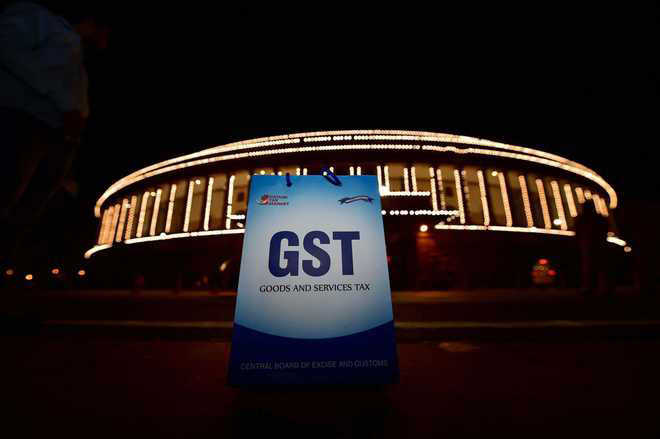

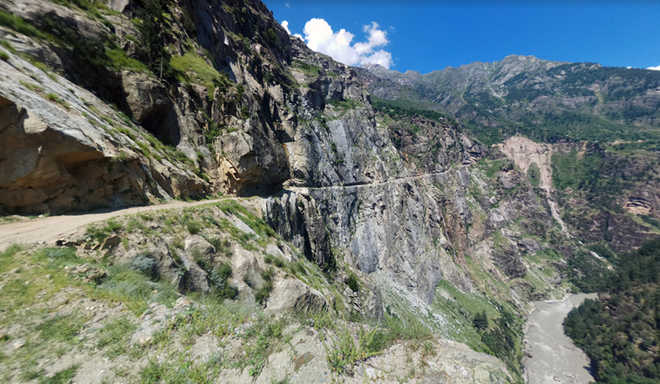
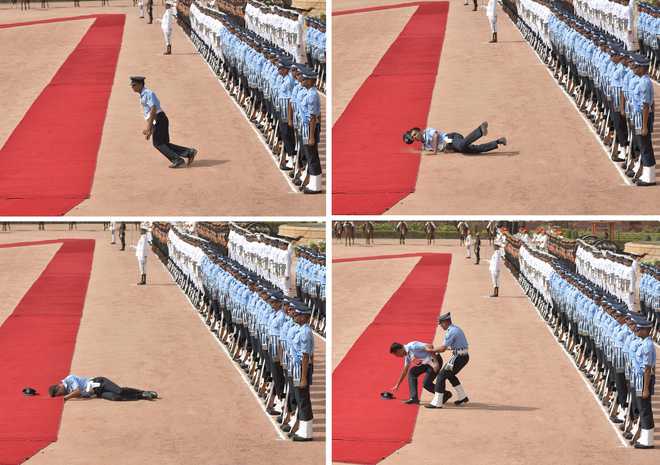
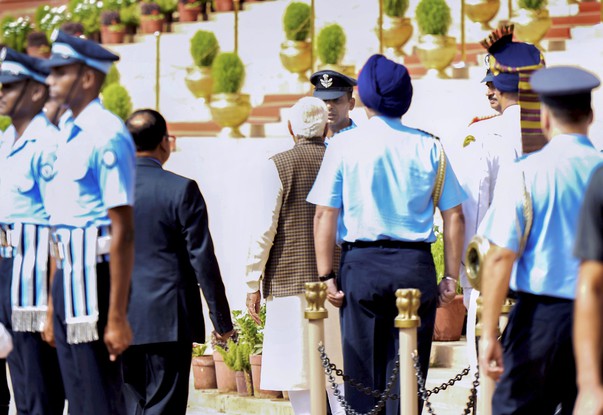
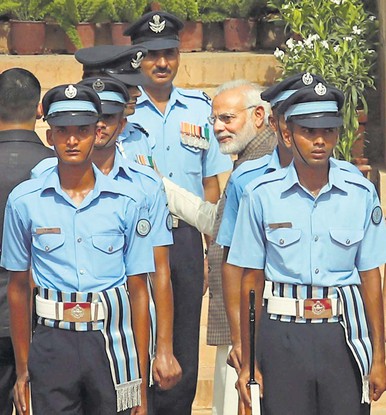
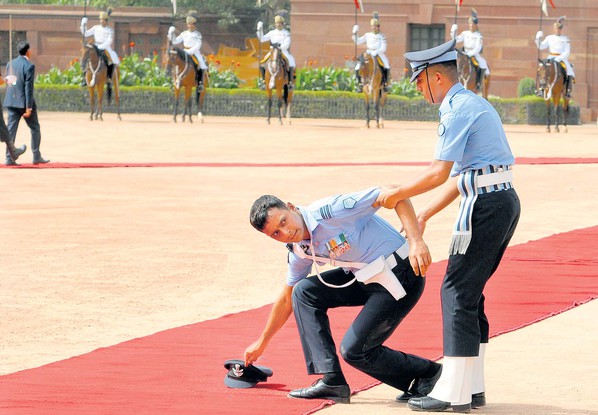
 PTI
PTI